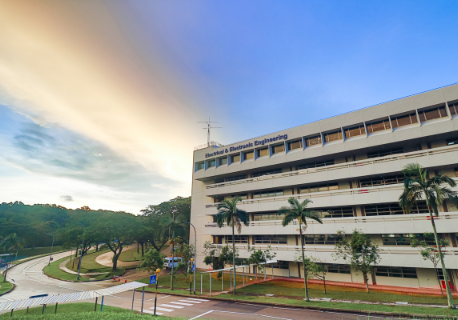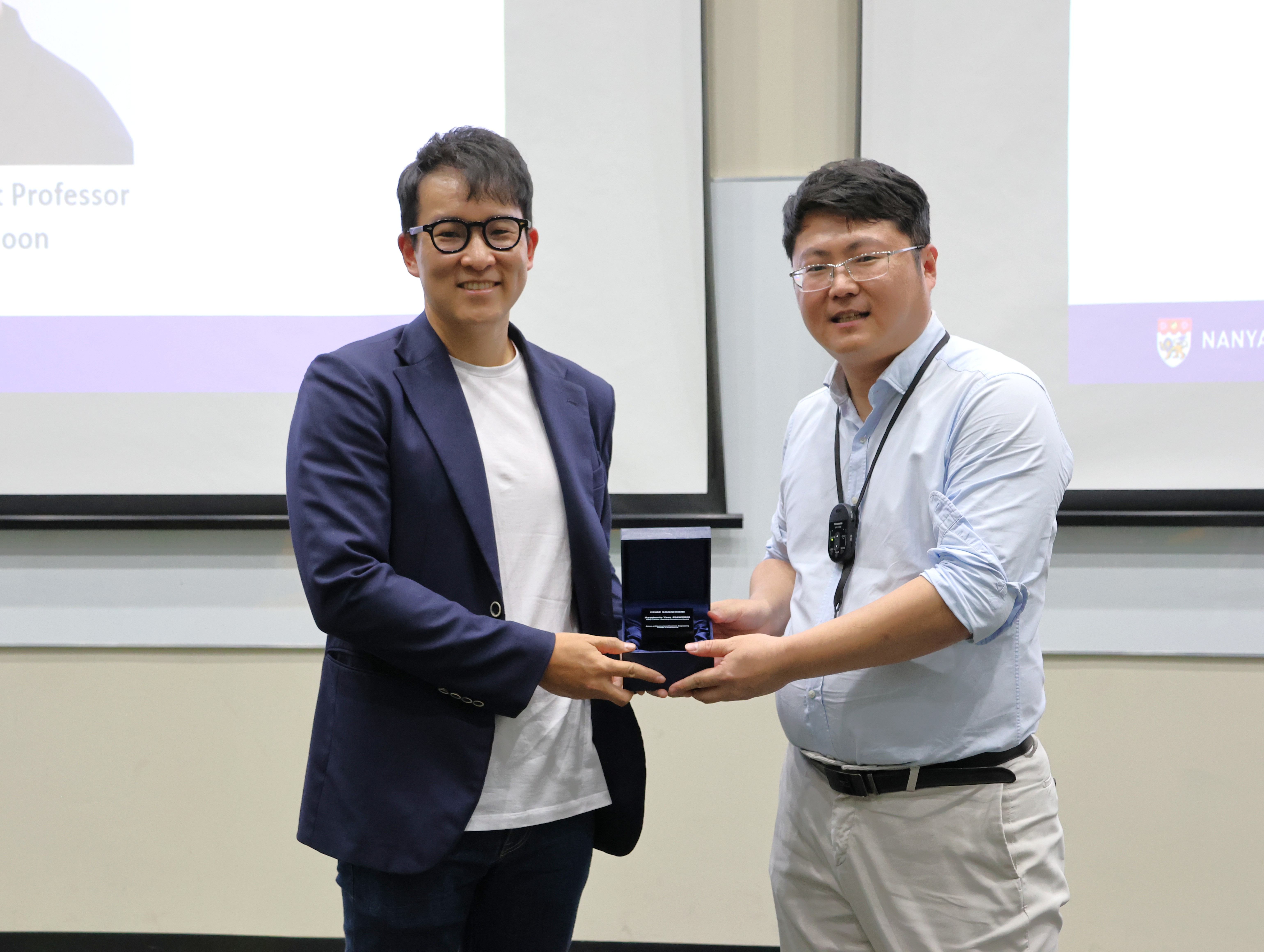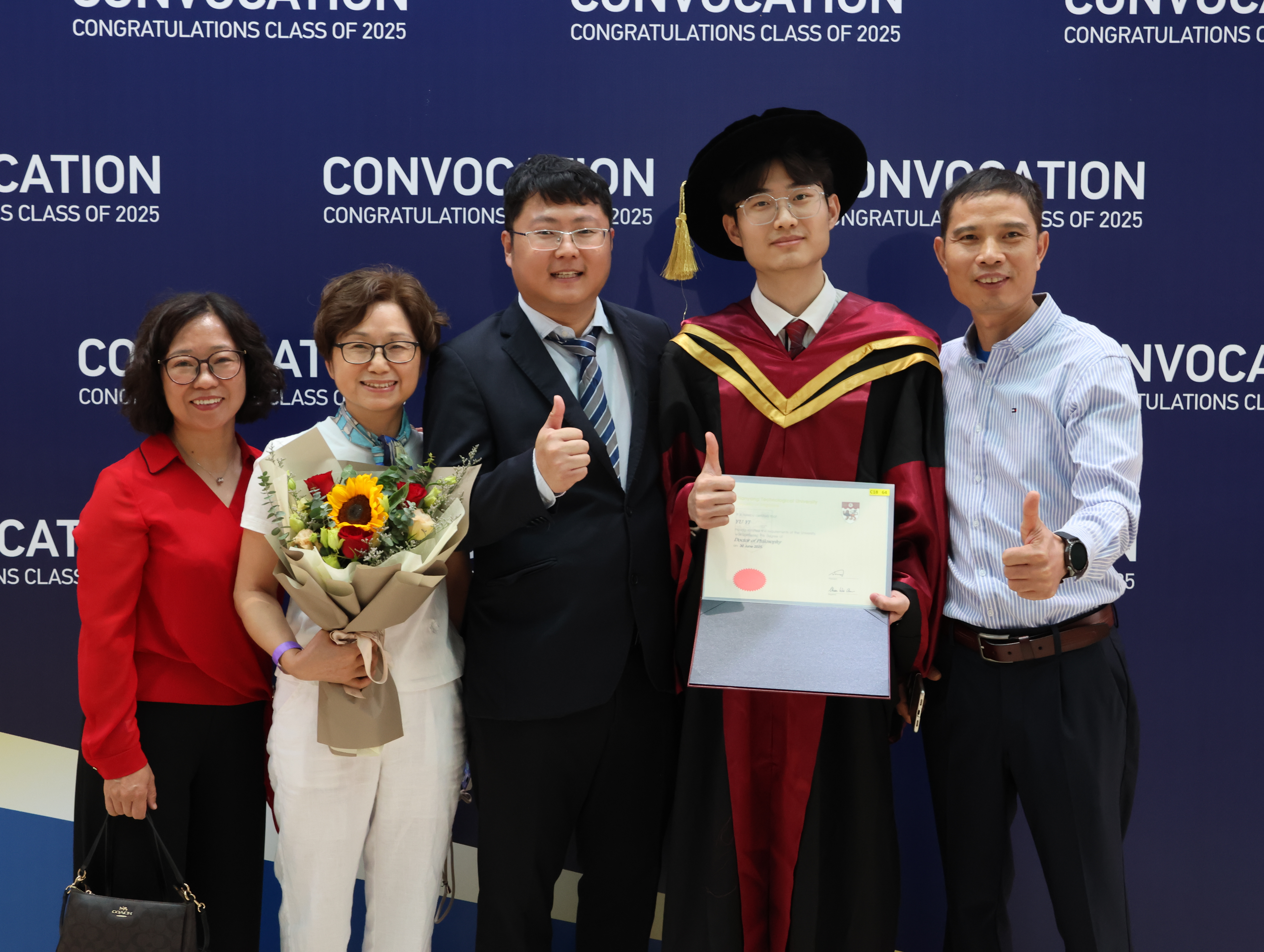About Us
Welcome to the School of Electrical and Electronic Engineering
The School of Electrical and Electronic Engineering (NTU EEE) began as one of the three founding schools of Nanyang Technological University, then known as Nanyang Technological Institute. The first intake of 194 students graduated successfully in 1985, marking the first batch of NTU EEE graduates.
Today, the School has become one of the world’s largest engineering schools that nurtures competent engineers and researchers. Each year, the School graduates over a thousand students who are ready to take on great ambitions and challenges.
NTU EEE offers the following programmes:
- Two four-year direct honours professional degree programmes
- Electrical and Electronic Engineering (Full-Time & Part-Time)
- Information Engineering and Media
- MSc programmes by coursework
- Master of Engineering programme
- PhD programme
NTU EEE is now one of the top-ranked schools in the world, ranked 1st globally by subject in the U.S. News and World Report Best Global Universities Rankings 2025 and 4th worldwide in the QS University Rankings by Subject 2025 (Electrical and Electronic Engineering). It is also one of the Top Asian Schools (Ranked 5th) for the Shanghai Ranking's Global Ranking of Academic Subjects 2025 (Electrical & Electronic Engineering).
The School boasts a strong cadre of over 110 full-time faculty members from 21 countries with a broad spectrum of teaching and research expertise educated in renowned universities, including Massachusetts Institute of Technology (MIT), Stanford University, University of Cambridge, and Imperial College London, etc. Complementing the highly cited and internationally recognised faculty including many fellows of various professional societies, is a pool of extremely talented and competitive young faculty recruited from top institutions worldwide.
Among them, there are 18 IEEE Fellows (FIEEEs), 3 IET Fellows (FIETs), 3 Institute of Physics Fellows (FInstP), 5 Fellow of the Academy of Engineering Singapore (SAEng), 4 Fellow of Institution of Engineers Singapore, 3 Fellow of The Optical Society, and 17 Fellows of other professional bodies. Our faculty members serve as Editor-in-Chiefs for 9 journals, and Editors, Associate Editors, Technical Editors and Editorial Board Members for more than a hundred international journals, which include many IEEE
The School receives over $80 million in annual research funding. They are supported by about 300 researchers from all over the world. These researchers enable the school’s extensive research output in the areas of Big Data Analytics, Internet of Things, Intelligent Transportation (V2X), Satellites, Photonics, Autonomous Systems, Power and Energy Engineering, Biomedical and Healthcare, Communications Engineering and Artificial Intelligence. publications. Our faculty publishes an average of more than 900 journal papers and close to 500 conference papers per year. Over the last 5 years, more than 530 patents have been filed and close to 150 have been granted.
Our faculty members are also engaged in a broad range of collaborations with renowned overseas universities, research institutes and multinational companies to ensure we stay ahead of tomorrow’s demands.
Being Singapore's first school with an undergraduate satellite programme, NTU EEE has proudly launched a total of nine locally-made satellites, including Singapore’s first satellite, the X-SAT, in 2011. Since NTU EEE’s Satellite Research Centre’s inception in 1999, it has been at the forefront of space innovations. In January 2017, we launched our seventh satellite, the AOBA VELOX-III, which was the first Singaporean satellite ever to be launched from the International Space Station. To support advanced research, the school hosts 14 research centres/facilities and 60 laboratories which are equipped with sophisticated and state-of-the-art equipment.
Our partners include Thales, Delta Electronics, NXP, Schaeffler Group, SMRT, ST Engineering, Continental and Singapore Power. NTU EEE has set up five corporate laboratories for joint research & development, and these centres are pushing the frontiers of technological innovation.
The School is continuously reviewing its programmes to ensure that the curriculum is relevant and up to date with the advancement of science and engineering, changes in industry and Singapore’s economic needs. On the research front, the School aims to enhance its international and regional research standing. It will continue to develop multidisciplinary research centres of excellence and promote vibrant research culture. It will perform active sensing of international trends and national needs in order to develop new initiatives to meet these needs.
To date, NTU EEE consists of an average of 3000 undergraduate students in eight areas of specialisation, 2000 students in nine graduate academic programmes, and an alumni strength of over 36,000.





